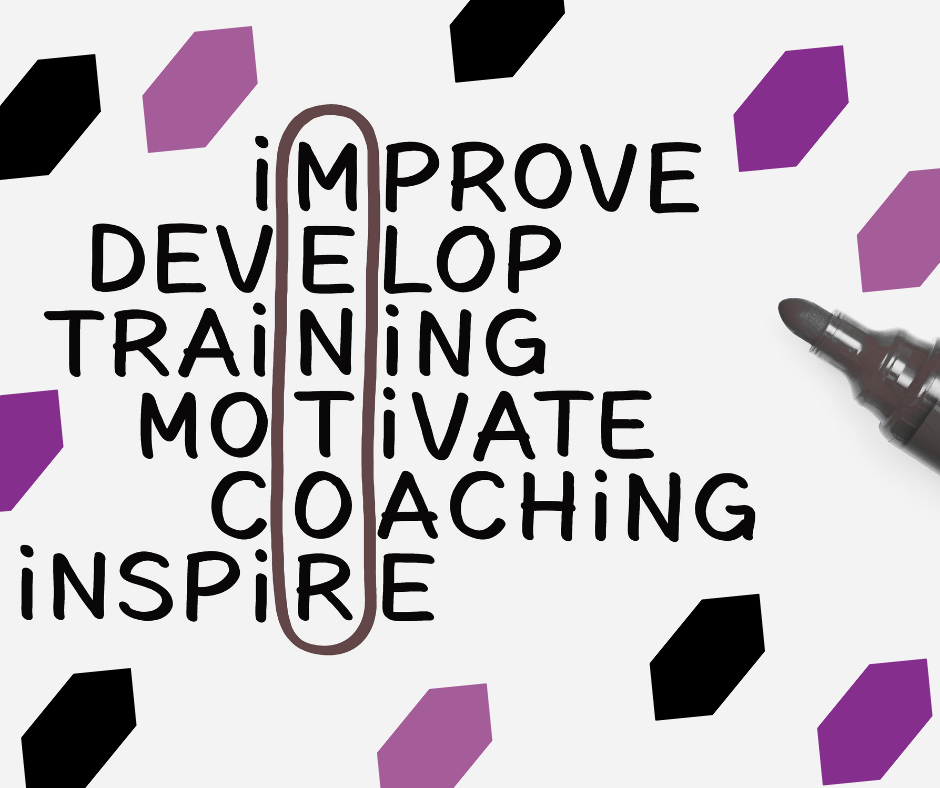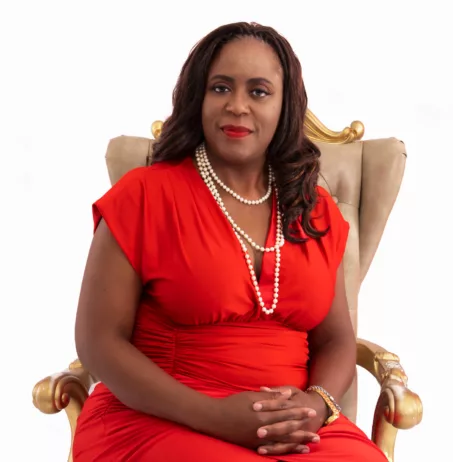August 20, 2023

Let’s talk about the importance of mentors. I’m happy you landed here. Today’s blog is all about mentorship, and we’re going to dive deep into the topic to help you navigate this critical aspect of your professional growth.
Mentorship can be a powerful tool, offering guidance and support as you journey towards success and fulfillment. Too many Black women have no mentoring at all. Honestly, I didn’t get my first one until I was over 20 years into my career. And it has made all the difference in your career.
However, even the most well-intentioned people can sometimes make mistakes. Whew chile!! So, let’s shine a light on the top 20 missteps commonly made (and show you how to avoid them!).
1. Mentors Who Lack of Empathy and Understanding
For high-achieving Black female executives, finding mentors who can truly relate to their unique experiences and challenges can be particularly difficult. The intersection of race, gender, and career trajectory often creates a set of obstacles that differ from those faced by their white male counterparts.
Mentors who fail to acknowledge and empathize with these unique challenges can inadvertently create an environment where mentees feel misunderstood or unsupported. This can lead to frustration, isolation, and even a loss of confidence in one’s abilities.
Furthermore, mentors who lack empathy may struggle to provide meaningful advice or guidance tailored to the specific needs of Black female executives. They may offer generic suggestions that fail to address the unique cultural and professional contexts in which their mentees operate.
2. Mentors Imposing Their Personal Agenda
Effective mentorship is a two-way street, a collaborative endeavor where both mentor and mentee share a common goal: the growth and success of the mentee. When mentors impose their personal agenda, they disrupt this delicate balance, creating an environment where the mentee’s needs and aspirations are overshadowed by the mentor’s own ambitions.
The consequences of a mentor imposing their personal agenda can be detrimental to the mentee’s professional growth. Mentees may feel stifled, their individuality and unique talents suppressed under the weight of the mentor’s expectations. They may lose confidence in their own judgment and abilities, doubting their capacity to make their own decisions and chart their own course.
Effective mentors understand that mentorship is not about imposing their will but about empowering others to reach their full potential. They cultivate environments of collaboration, where mentor and mentee work together to achieve shared goals, recognizing that each individual brings unique perspectives and valuable contributions to the relationship.
3. Neglecting Personal Context
Effective mentorship recognizes that professional success is intertwined with personal fulfillment. Look for mentors who understand and support your desire for balance in all aspects of your life.
Mentors who neglect personal context may inadvertently hinder their mentees’ overall growth. They may focus solely on career-related goals, overlooking the importance of personal well-being and its impact on professional performance. They may encourage mentees to prioritize work over personal commitments, creating an unsustainable cycle of stress and imbalance.
The consequences of neglecting personal context can be far-reaching, affecting not only the mentee’s professional trajectory but also their overall well-being. Mentees may experience burnout, leading to decreased productivity, diminished creativity, and a weakened immune system. They may also face strained relationships, social isolation, and an overall sense of dissatisfaction with life.
Mentors who embrace personal context create an environment where mentees feel empowered to pursue their professional aspirations without compromising their personal well-being. They understand that success is not defined by career achievements alone but by a holistic sense of fulfillment, encompassing both personal and professional growth.
4. Lack of Cultural Sensitivity
Being culturally sensitive is key. Seek someone who honors and respects your heritage. While also understanding the unique challenges you face as a Black woman in the corporate world.
Culturally sensitive mentors recognize the significance of cultural identity, acknowledging the profound impact it has on your professional journey. They understand that cultural background shapes perspectives, communication styles, and approaches to problem-solving, all of which contribute to an individual’s unique value proposition.
The consequences of lacking cultural sensitivity in mentorship can be detrimental to the professional growth and well-being of Black women. Mentees may experience feelings of isolation, disengagement, and a sense of not belonging, hindering their ability to thrive in the corporate world. There’s nothing worse than sitting at the table year after year feeling like you stick out like a thumb. It’s like always being the apple in a basket of oranges. Sometimes you want to look over and see some more apples.
Culturally sensitive mentors, on the other hand, foster an environment of understanding, respect, and inclusivity. They actively seek to learn about their mentees’ cultural backgrounds, demonstrating genuine interest in their heritage and perspectives. They engage in open and respectful dialogue, creating a safe space for mentees to share their experiences and concerns without fear of judgment or dismissal.
By embracing cultural sensitivity, mentors empower Black women to navigate the corporate landscape with confidence and authenticity. They provide invaluable guidance and support, tailored to the specific cultural context in which their mentees operate, enabling them to overcome challenges, achieve their goals, and contribute their unique talents to the workplace.
5. Failing to Challenge and Inspire
A good mentorship should push you out of your comfort zone and encourage you to aim higher. Seek mentors who believe in your potential and challenge you to reach new heights.
6. Overstepping Boundaries
They need to strike a balance between offering guidance and respecting boundaries. Understanding your need for empowerment and autonomy.
7. Not Sharing Personal Failures
Mentors who only project perfection can create unrealistic expectations. Look for someone who openly share their own failures and how they navigated through them—these are the ones who will help you grow.
8. Providing Generic Advice
Effective mentors understand that one size does not fit all. Seek mentors who provide personalized advice that aligns with your unique circumstances and aspirations.
9. Ignoring Intersectionality
As a Black woman, your experiences are shaped by both your race and gender. Look for mentors who appreciate the complexities of your intersectional identity and support you in navigating those challenges.
10. Lack of Follow-through
Avoid people who fail to follow up can leave you feeling unsupported. Seek mentorship from someone who actively track your progress and provide consistent guidance. Discreetly ask around. You don’t want to be stuck with a mentor who never delivers on anything.
11. Not Listening to Feedback
A good mentor should welcome and value your feedback. Look for mentors who are open to receiving constructive criticism and adapting their approach accordingly.
12. Focusing Solely on Career Advancement
While professional growth is important, a holistic approach to mentoring is crucial. Seek a mentorship where your personal well-being along with your career aspirations are encouraged.
13. Neglecting Mental and Emotional Support
Mentorship involves more than just professional guidance. Look for mentors who provide a safe space where you can express your fears, concerns, and emotions.
14. Imparting a Fixed Mindset
Mentors who perpetuate a fixed mindset can limit your potential. Seek mentors who believe in the power of growth and continuously encourage you to develop your skills and talents.
15. Lack of Diversity
Mentoring that doesn’t value diversity limits your exposure to different perspectives. Seek mentors from various backgrounds who can provide a broader range of experiences and insights.
16. Taking Credit for Your Success
Be cautious of mentors who take credit for your achievements. Seek mentors who celebrate your victories as their own and amplify your voice in professional circles.
17. Not Encouraging Networking
Effective mentors understand the importance of networking for career advancement. Seek mentors who help you build meaningful connections and expand your professional circle.
18. Failing to Acknowledge Privilege
Not all mentors acknowledge their own privilege, which can lead to blind spots. Seek a mentors who actively recognize and address systemic barriers that you may face.
19. Neglecting Work-Life Harmony
Balancing work and personal life is crucial for long-term success. Seek mentorship that champions work-life harmony and offer strategies to help you find fulfillment on both fronts. My mentor always checks in on my personal life by inquiring what I scheduled, and actually followed through with. This helps to keep me balanced and honest (LOL).
20. Lack of Commitment
Finally, mentoring that’s not fully committed to your growth can hinder progress. Seek mentors who are dedicated, present, and invested in your journey. A mentor who is always too busy to even meet with you, is a total waste of mentorship. If you find yourself with this mentor, take immediate action to leave that mentor-mentee relationship.
If you feel that it’s not possible to leave the relationship, all is not lost. You can have more than one mentor. Therefore, you could actually pursue a second mentor, using the lessons you just learned.
In Conclusion
Remember, these common mistakes are not meant to discourage you or undermine the power of mentorship. Instead, they serve as guideposts to help you choose the right mentors who will elevate and support your personal and professional development.
By being aware of these pitfalls, you’re empowered to seek a mentorship which align with your values and aspirations. Together, we can create transformative relationships that lead to growth, fulfillment, and the balance you deserve.
Are you having difficulties finding a mentor? As I alluded to before, it is indeed challenging for many of us as Black women to find a good mentor. An alternative solution is hiring a culturally sensitive career coach. I’ve provided these services to many of my clients, precisely because it can be difficult. It’s important to have that support as you are navigating the workplace.
I cannot tell you how valuable my mentor has been to me over the past 7 years. His mentorship is a huge part of why I was able to leave a 6-figure job with the federal government and become a full time entrepreneur. You can read more about how I left my job during the pandemic to run both of my businesses.
I totally get it, because I’ve experienced having no mentors, as well as those who were ineffective. If this resonates with you, I encourage you to request a 30-Minute Career Solution call with me today. Don’t feel isolated and apprehensive because you feel like you’re alone on this career journey. I’m here for you. Schedule your free 30-Minute Career Solution Call today.
Stay tuned for more empowering content tailored to you, exceptional Black female leaders, movers, and shakers. Your journey towards success and fulfillment is our priority!

Twanna Carter, PhD, ICF/PCC, Career Coach for Black Women Leaders | 20+ Years of Experience Helping Women Achieve Their Career Goals | Leadership | Personal Development | Business Strategy | Career Development | Lifestyle Balance | Digital Business Card | Free 30-Minute Career Solution Call
+ show Comments
- Hide Comments
add a comment